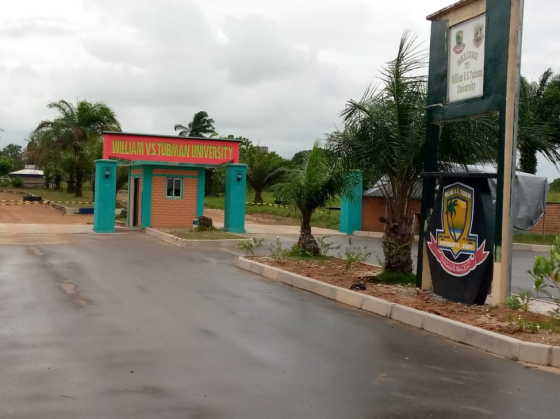Senate Commences Hearings on Tubman University Crisis

The Senate Committee on Education and Public Administration has commenced Public Hearings, beginning with officials of the Tubman University Faculty Association (TUFA), relative to the disengagement previously launched by the association.
The Committee’s hearing on Capitol Hill yesterday brought officials of TUFA face to face with members of the Senate Committee to discuss the way forward to resolving several counts raised by the Faculty Association and ensure that members of the faculty disengage their strike and return to the classroom.
Addressing members of the Committee, the president of Tubman University Faculty Association, Francis Fuka lamented that the association has written several communications to the Administration of the Institution, but to no avail, as the institution received no redress.
TUFA’s president also informed the Committee that the Board of the University has also been notified of all the communications served to the Administration of the University, but the Administration has chosen to play deaf ears to their concerns.
Among several concerns raised, the President of TUFA informed the Senate that paramount amongst the concerns are the lack of offices for faculty members, dilapidated classrooms, hazardous bathrooms, no housing facilities for faculty members and the lack of internet facilities to do research even though US$97,000.00 has been budgeted for research, of which the TU president’s office alone benefits US$30,000.00 for research, leaving faculty with nothing for research.
The TUFA leader also indicated that the computer lab is another sorrowful scene, with 31 students being taught with just 6 computers.
Accompanying the president of TUFA was the secretary-general of the Association, who happens to be the Chairman of the Department of Mechanical Engineering.
According to him, there is no laboratory for engineering students to do research and even if a projector is taken to the classroom for students to witness videos as a substitute for laboratory research, power outage is a serious impediment, which prevents the functioning of projectors.
However, as TUFA has demanded the resignation of the president of the University, Dr. Wreh Wilson, before any negotiation. Meanwhile, Dr. Wilson resigned few days ago, followed by the appointment of Mr. Emmanuel Sieh Wreh as Acting President.
Members of the Senate Committee on Education and Public Administration have appealed to the Faculty Association to return to the classrooms to begin normal academic activities as their concerns will be adequately taken before the Plenary of the Liberian Senate for speedy redress.
It can be recalled that on February 26, 2022, the Tubman University Faculty Association launched a strike to disengage from the classrooms following failure on the part of the University’s administration to address several concerns raised by the Association.
The strike by TUFA precipitated radical action by students of TU to close other grade schools in Harper City, Maryland County. The situation at Tubman University was brought to the attention of the Liberian Senate by Maryland County Senator Gbleh-bo Brown.
Meanwhile, the President of Tubman University, Dr. Elliott Wreh-Wilson, has resigned amid complaints that he has done too little to address huge salary disparities among instructional staff and other ugly incidents on campus.
In his resignation letter, Dr. Wilson said he was constrained to resign because he does not view violence as a means of order, following adversity after adversity on the campus of Tubman University.
Before Dr. Wilson's resignation, students and the university faculty said they asked his administration to combat the issue of suffering and oppression as a result of his alleged “iron fist and jackboot approach to administration, poor learning conditions for students and to correct salary disparities.”
Dr. Wilson was accused by the students and faculty of ignoring their concerns, a situation which they claimed forced them to protest as means of demanding his resignation. The protests then stalled learning at Liberia’s second-oldest public university for weeks with faculty and students boycotting classes, paralyzing learning at the university.
Founded in 1978 as the William V. S. Tubman College of Technology, the school originally offered associate's degrees in architecture, civil engineering, electrical engineering, electronics, and mechanical engineering.
Tubman College was also one of the main schools in Liberia to produce secondary school teachers. In 1990, the college was accredited to offer Bachelor of Science degrees in those fields but soon closed following the outbreak of the First Liberian Civil War. The school remained closed through the 1990s and the end of the Second Liberian Civil War in 2003.
In 2008, the college was reopened by President Ellen Johnson Sirleaf, with Dr. Elizabeth Davis-Russell appointed that year as the first female president of the university. In April 2009, Sirleaf signed a bill elevating Tubman to university status, and the newly renamed and renovated university opened on 14 September 2009. The nation's first female mechanical engineer graduated from William V. S. Tubman University in 2016
